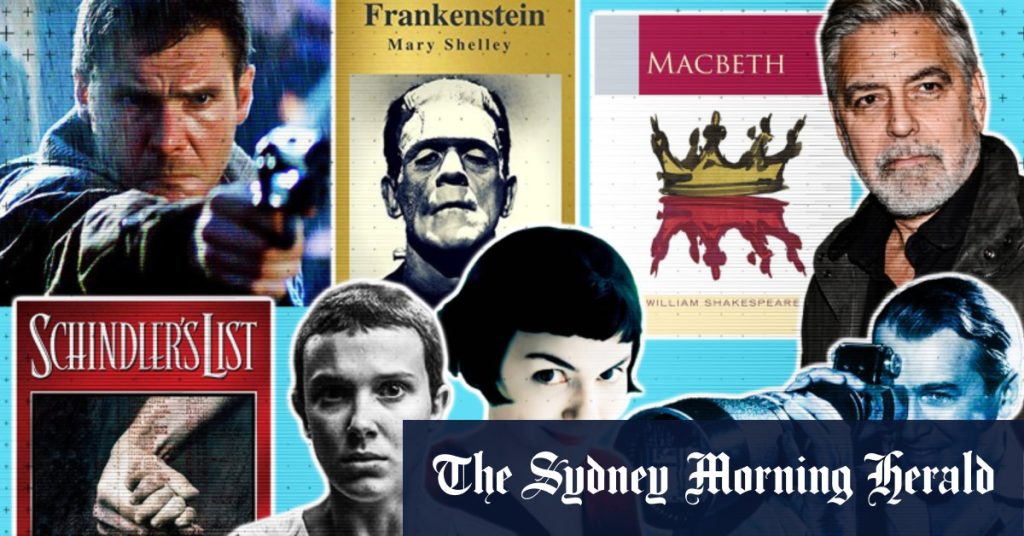The Queensland Curriculum and Assessment Authority (QCAA) has unveiled a revamped prescribed text list for Year 12 English students, effective from 2026 to 2029. This revised catalogue features a diverse array of media, encompassing documentaries, films, television series, memoirs, novels, plays, and poetry, reflecting a commitment to engaging students with a wide range of literary and cinematic forms. While some classic texts have been retired, the new list retains a core of canonical works, introduces several new additions, and emphasizes Australian authors and creators, ensuring a blend of familiar and fresh material for students to explore. The changes reflect an ongoing evolution in educational priorities, aiming to balance traditional literary study with contemporary and diverse voices.
One of the most notable shifts involves the works of William Shakespeare. While Shakespeare remains the most represented author with four texts on the list, akin to the current curriculum, the specific plays have been adjusted. “As You Like It” and “Hamlet” are being phased out, making way for “Julius Caesar” and “Twelfth Night.” “Macbeth” and “Othello” retain their places, with “Macbeth” remaining on the general list until 2029 despite its removal from the external assessment list at the end of 2023. This reshuffling within the Shakespearean canon offers students exposure to a different range of themes and dramatic styles, potentially refreshing the approach to studying the Bard.
Beyond Shakespeare, the QCAA has introduced several intriguing additions. Classic literature enthusiasts will find familiar titles such as Mary Shelley’s “Frankenstein,” Charlotte Brontë’s “Jane Eyre,” F. Scott Fitzgerald’s “The Great Gatsby,” George Orwell’s “Nineteen Eighty-Four,” Oscar Wilde’s “The Importance of Being Earnest,” Arthur Miller’s “The Crucible,” and Tennessee Williams’s “The Glass Menagerie.” These enduring works continue to offer valuable insights into human nature, societal structures, and literary artistry. The inclusion of Patrick Hamilton’s “Gaslight” offers a study in psychological manipulation, while Thomas Keneally’s “Schindler’s Ark” provides a powerful historical perspective on the Holocaust.
The new list also embraces a wider range of media, incorporating film and television. Ridley Scott’s “Blade Runner” brings science fiction and philosophical questions about artificial intelligence to the classroom. The popular Netflix series “Stranger Things” offers a contemporary cultural touchstone, exploring themes of friendship, supernatural mysteries, and coming-of-age in a 1980s setting. Alfred Hitchcock’s classic thriller “Rear Window” allows students to analyze cinematic techniques and explore themes of voyeurism and suspicion. These additions reflect a growing recognition of the importance of visual storytelling in contemporary culture and its potential for enriching literary study.
The QCAA has also made a concerted effort to increase the representation of Australian authors and creators. Now comprising two-fifths of the prescribed texts, this emphasis reflects a commitment to showcasing local talent and perspectives. However, this focus also necessitates the removal of some existing Australian works. Geraldine Brooks’s novel “March,” Katherine Boo’s “Behind the Beautiful Forevers,” and Joanna Murray-Smith’s play “Switzerland” are among the texts being retired. The addition of new Australian voices will hopefully create a vibrant and diverse representation of Australian literature and film.
The inclusion of two Ancient Greek plays, Aristophanes’s comedy “The Frogs” and Euripides’s tragedy “The Trojan Women,” broadens the historical scope of the curriculum. These works offer students an opportunity to engage with foundational texts of Western literature, exploring ancient Greek theatrical conventions, societal values, and enduring human themes. The addition of these plays alongside classic English literature and contemporary film creates a rich tapestry of storytelling across diverse periods and cultures, fostering a deeper understanding of the evolution and universality of narrative. The overall effect of the revised text list is a blend of tradition and innovation, aiming to equip students with a broad understanding of literary and cinematic forms while emphasizing Australian voices and incorporating a broader range of media.

